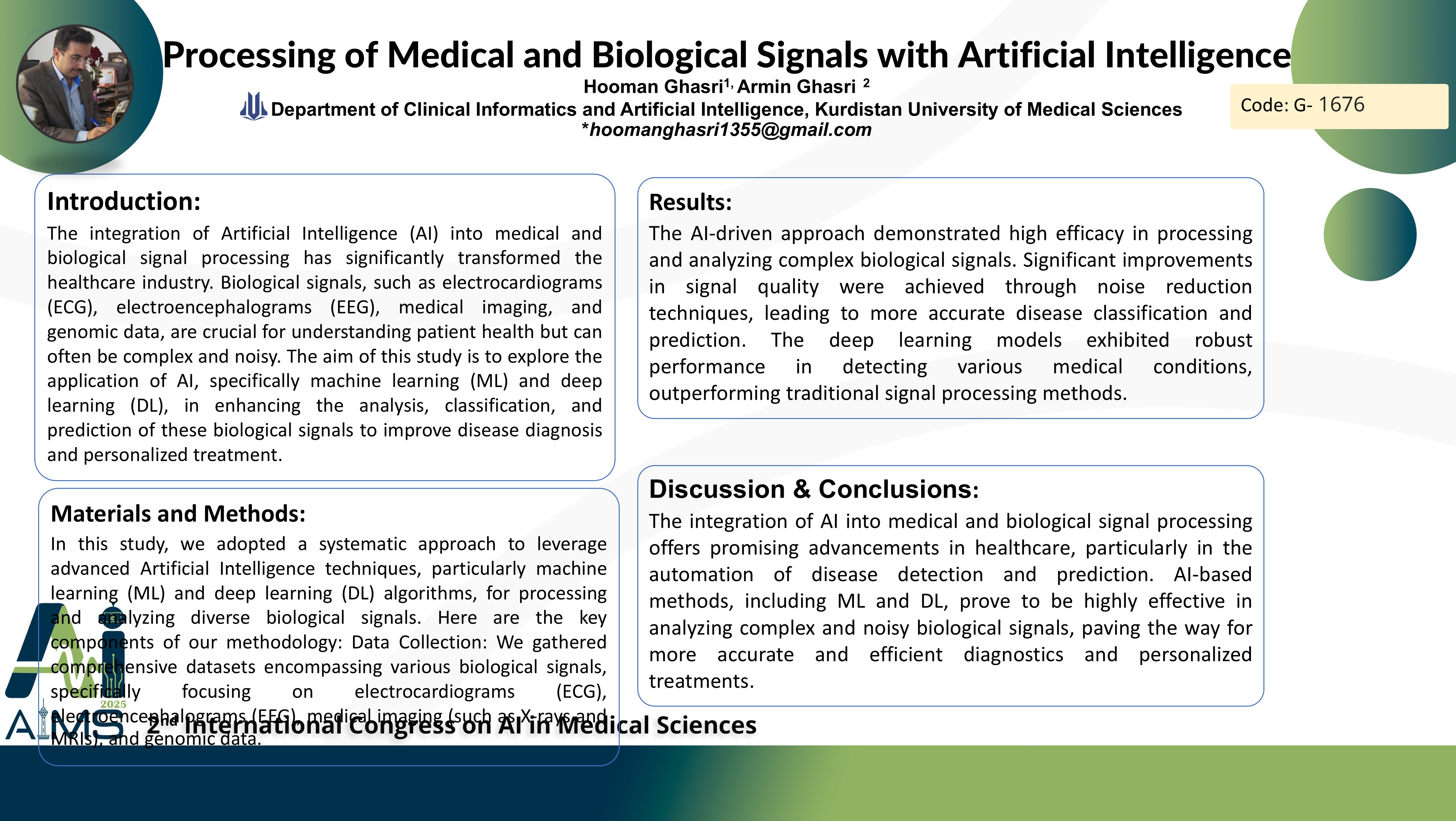Processing of medical and biological signals with artificial intelligence
Code: G-1676
Authors: Amin Ghasri, Hooman Ghasri * ℗
Schedule: Not Scheduled!
Tag: Biomedical Signal Processing
Download: Download Poster
Abstract:
Abstract
Background and Aims: The integration of Artificial Intelligence (AI) into medical and biological signal processing has significantly transformed the healthcare industry. Biological signals, such as electrocardiograms (ECG), electroencephalograms (EEG), medical imaging, and genomic data, are crucial for understanding patient health but can often be complex and noisy. The aim of this study is to explore the application of AI, specifically machine learning (ML) and deep learning (DL), in enhancing the analysis, classification, and prediction of these biological signals to improve disease diagnosis and personalized treatment. Method: In this study, we adopted a systematic approach to leverage advanced Artificial Intelligence techniques, particularly machine learning (ML) and deep learning (DL) algorithms, for processing and analyzing diverse biological signals. Here are the key components of our methodology: Data Collection: We gathered comprehensive datasets encompassing various biological signals, specifically focusing on electrocardiograms (ECG), electroencephalograms (EEG), medical imaging (such as X-rays and MRIs), and genomic data. These datasets were sourced from reputable medical databases and included both raw signals and labeled instances for supervised learning tasks. Data Preprocessing: Given the complexity and noise inherent in biological signals, extensive preprocessing was conducted. This involved the following steps. Model Selection: Various ML and DL algorithms were selected for comparison, including but not limited to: Machine Learning Models: Support Vector Machines (SVM), Random Forests, and Gradient Boosting Machines were utilized for their effectiveness in classification tasks Results: The AI-driven approach demonstrated high efficacy in processing and analyzing complex biological signals. Significant improvements in signal quality were achieved through noise reduction techniques, leading to more accurate disease classification and prediction. The deep learning models exhibited robust performance in detecting various medical conditions, outperforming traditional signal processing methods. Conclusion: The integration of AI into medical and biological signal processing offers promising advancements in healthcare, particularly in the automation of disease detection and prediction. AI-based methods, including ML and DL, prove to be highly effective in analyzing complex and noisy biological signals, paving the way for more accurate and efficient diagnostics and personalized treatments.
Keywords
Artificial Intelligence, Signal Processing
